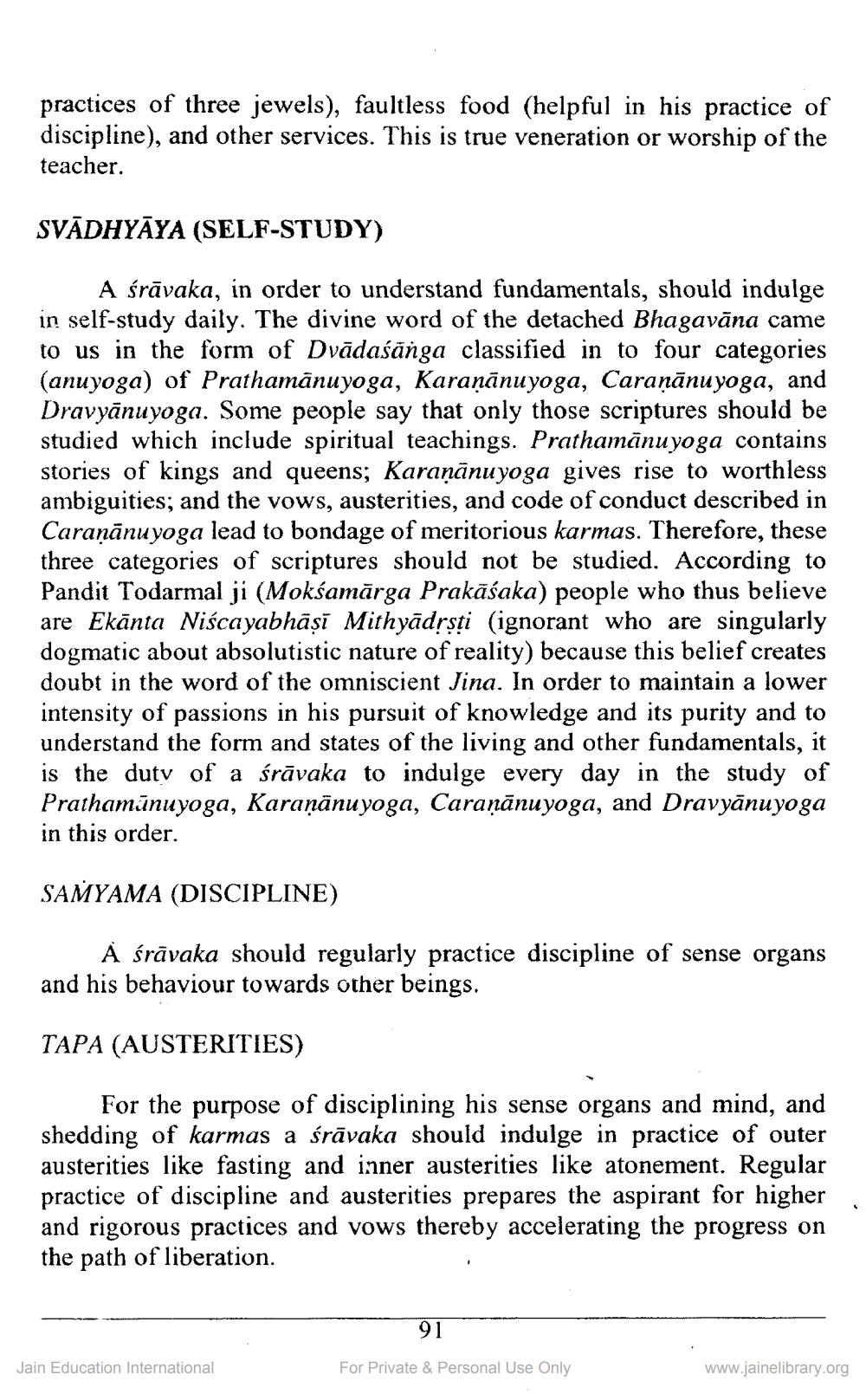________________
practices of three jewels), faultless food (helpful in his practice of discipline), and other services. This is true veneration or worship of the teacher.
SVĀDHYAYA (SELF-STUDY)
A śrāvaka, in order to understand fundamentals, should indulge in self-study daily. The divine word of the detached Bhagavāna came to us in the form of Dvādaśānga classified in to four categories (anuyoga) of Prathamānuyoga, Karaṇānuyoga, Caraṇānuyoga, and Dravyānuyoga. Some people say that only those scriptures should be studied which include spiritual teachings. Prathamānuyoga contains stories of kings and queens; Karaṇānuyoga gives rise to worthless ambiguities; and the vows, austerities, and code of conduct described in Caraṇānuyoga lead to bondage of meritorious karmas. Therefore, these three categories of scriptures should not be studied. According to Pandit Todarmal ji (Mokśamārga Prakāśaka) people who thus believe are Ekānta Niścayabhāṣi Mithyādṛṣṭi (ignorant who are singularly dogmatic about absolutistic nature of reality) because this belief creates doubt in the word of the omniscient Jina. In order to maintain a lower intensity of passions in his pursuit of knowledge and its purity and to understand the form and states of the living and other fundamentals, it is the duty of a śrāvaka to indulge every day in the study of Prathamānuyoga, Karaṇānuyoga, Caraṇānuyoga, and Dravyānuyoga in this order.
SAMYAMA (DISCIPLINE)
A śrāvaka should regularly practice discipline of sense organs and his behaviour towards other beings.
TAPA (AUSTERITIES)
For the purpose of disciplining his sense organs and mind, and shedding of karmas a śrāvaka should indulge in practice of outer austerities like fasting and inner austerities like atonement. Regular practice of discipline and austerities prepares the aspirant for higher and rigorous practices and vows thereby accelerating the progress on the path of liberation.
Jain Education International
91
For Private & Personal Use Only
www.jainelibrary.org




